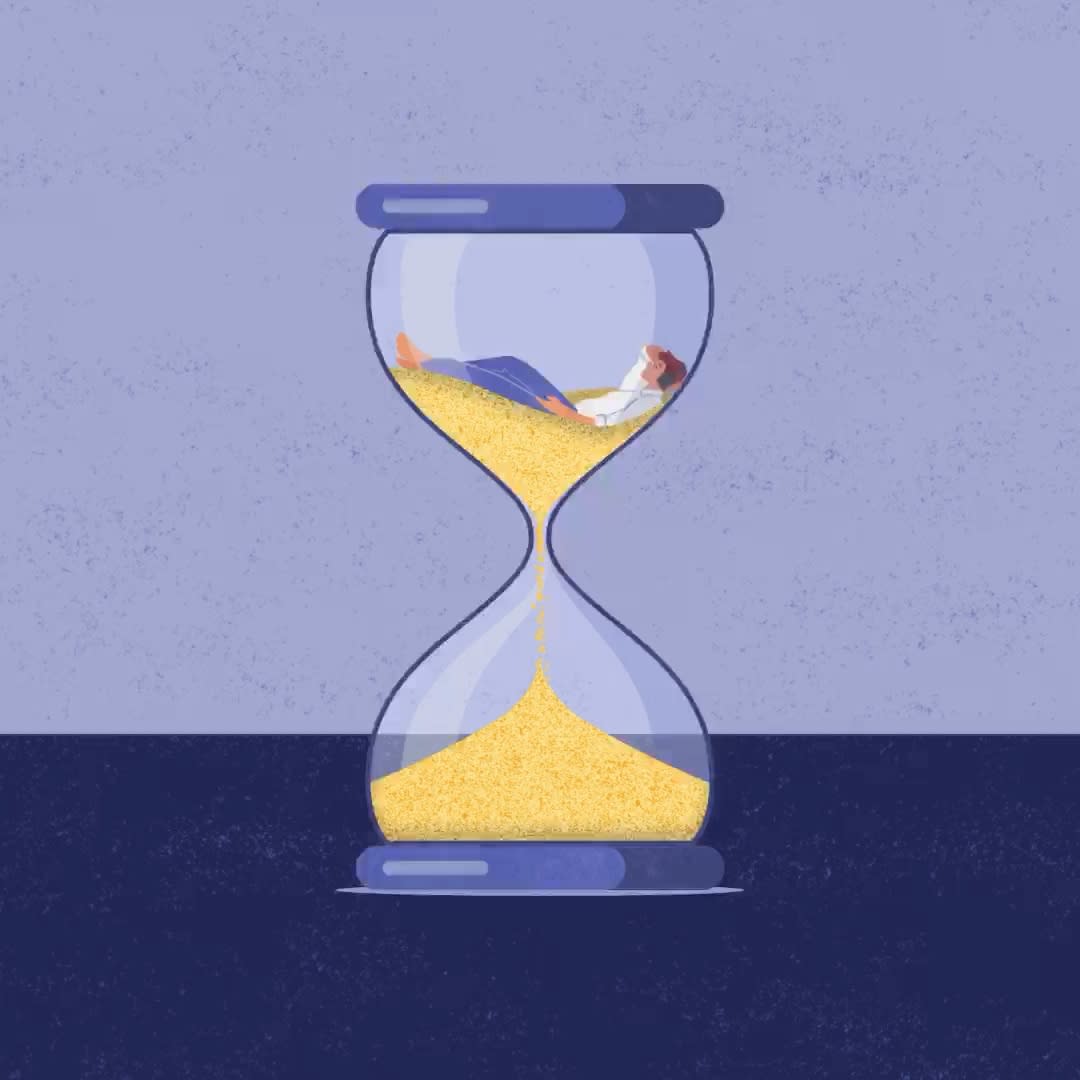Laziness does not exist, according to this psychologist

You get home from school. You make dinner, tidy up your room, call your friend and check whatever else you can off your to-do list. At some point, you try to relax and watch TV. But you can’t shake the feeling that you should be doing … something, anything, more.
In his book Laziness Does Not Exist, Devon Price, a social psychologist and professor at Loyola University, studies this experience and the commonly held notions that to rest is to do nothing and that people who take time to rest are lazy. He calls this idea the “laziness lie.”
Price argues the laziness lie shapes our lives by convincing us of three major misconceptions:
Your worth is determined by your productivity.
You cannot trust your needs and limitations.
There is always more that you could be doing.
“I’ve talked to dozens of accomplished, driven people who remain absolutely convinced that they are uniquely, shamefully lazy,” Price tells Chegg Life. When we see our worth determined by our productivity, we will always feel bad about ourselves because we believe there’s always more we could be doing, he explains. This thinking leads most of us to ignore our own needs and limitations, seeing ourselves as weak in the face of the impossible goal of being the “most” productive we can be.
The laziness lie has serious consequences for people in school. “Students have internalized our culture’s hatred of the lazy, just as most workers in the country have,” Price says.
“I know so many students who think what matters is how many hours they spend studying rather than how well they are doing or what help they need.”
He describes how ingrained it is in academia for instructors to be suspicious of their students who ask for accommodations, presuming that they’re “faking it” to “game the system.”
The laziness lie affects us in school, in our careers and in our personal lives. What can we actually do to unlearn these lies about productivity, work and rest? Price shared some strategies.
Reframe your ideas about rest
When you rest, you are not being lazy. Price explains that when we feel tired or unfocused, that feeling is our bodies asking for rest. It’s an effective system. If we ignore these warnings, prolonged stress takes a serious toll on the body.
Price first started researching the social psychology of productivity after he developed a severe stress-related illness that only improved after several months off work. After experiencing the consequences of hyperproductivity first-hand, Price came to see rest as a gift and idleness as restorative.
Rest, in itself, is valuable. It also helps us work better. Research shows that when we work too hard for too long, the quality of our work diminishes, whether you’re in a call center, a hospital or on your laptop. If you haven’t taken a walk or a nap today, here’s your invitation to do so.
Embrace the things you’re bad at
In a world where our worth is measured by our productivity and achievements, Price believes that it’s “vital we stop believing that life is something that requires justification.” We don’t have to generate or prove our value in order to deserve pleasure. Price says to practice finding pleasure and joy in activities that we're bad at as a way to “divorce our self-concept from what value we produce for others.”
If you started baking, doing ceramics or biking back in lockdown only to give it up because you weren’t stellar at it, why not give it another go? Find joy in not being perfect at something on the first try.
Listen to your feelings and limits
We often ignore our limits in order to make others happy and serve the idea that we should do as much as possible in our lives. This makes it easy to ignore your gut telling you that you don't have the energy when your boss asks you to take on an extra assignment or your dad pressures you to attend a family event you don’t want to. To listen to the limits of our bodies and say no is a sign of strength. Price says this is “an act of agency.”
But listening to your body takes practice when we’ve spent years ignoring it and honing our ability to tamp down exhaustion. The author suggests Pennebaker’s expressive writing exercise, which involves spending 15 or 20 minutes a day writing about something that bothers you. “[I practice] ‘feeling my feelings’ for 20 minutes at a time, one or two times per week, in order to reconnect with what I need to function healthily,” says Price.
Fight for rest together
It’s all well and good for privileged people to declare that everyone should work less. What about a single mom working three jobs? How is she supposed to renounce productivity? Here, Price turns to the work of Tricia Hersey, founder of The Nap Ministry, an organization that educates people about the liberating power of naps through collective napping, mindfulness workshops and social media. It's true that privileged people will have a much easier time protecting their rest. Hersey argues we can’t just obey the rules of the current system.
Price explains that “rather than seeing rest as an individual privilege, we must work together to amass the power necessary to collectively refuse to be treated this way.” He says that “together, when we support one another, we all have the power to do less.”
View the original article at Chegg Life and signup for the Chegg Life Newsletter
Related...